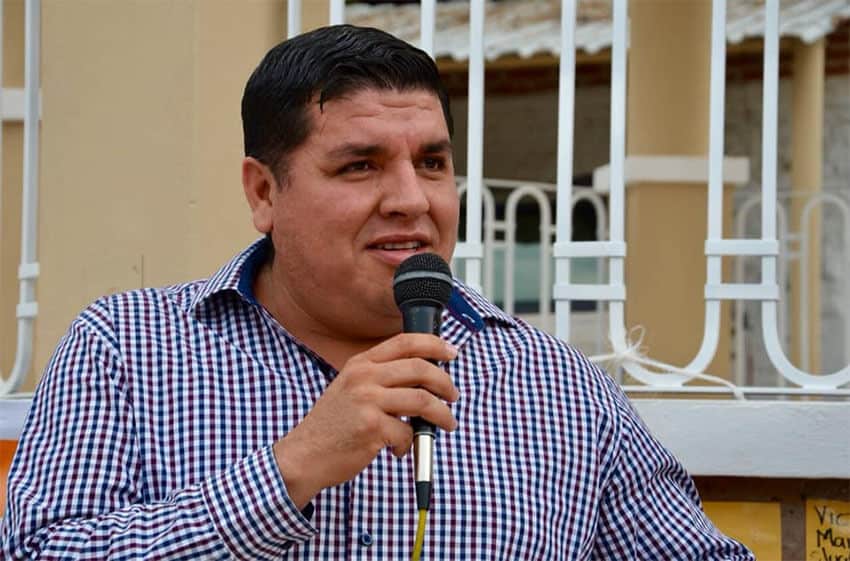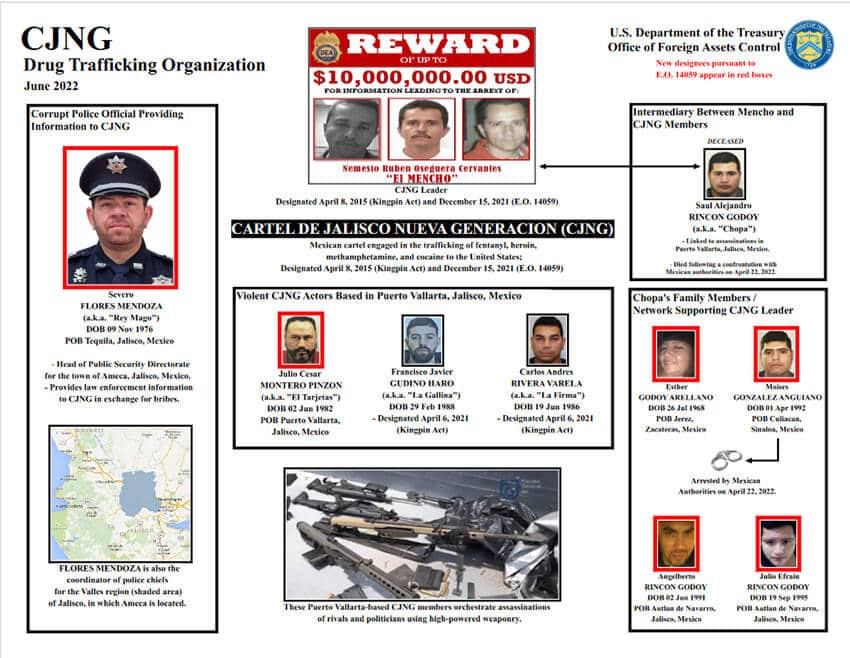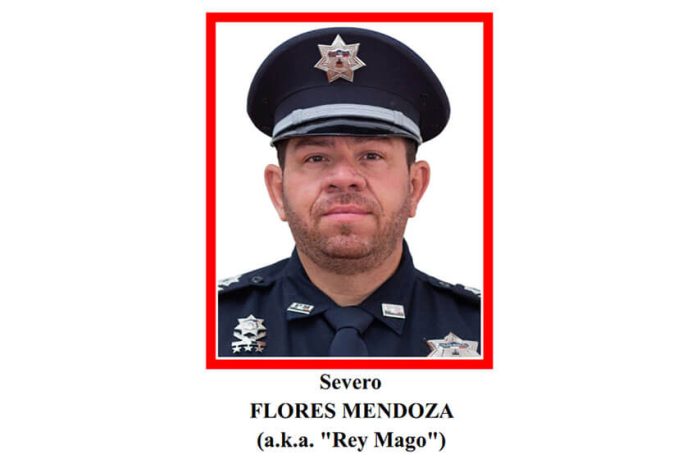The police chief of Ameca, Jalisco, has been dismissed after the United States government declared that he takes bribes from the Jalisco New Generation Cartel (CJNG).
The U.S. Department of the Treasury (USDT) announced Thursday that its Office of Foreign Assets Control (OFAC) had designated Severo Flores Mendoza under an executive order – Imposing Sanctions on Foreign Persons Involved in the Global Illicit Drug Trade – issued by U.S. President Joe Biden.
Flores “is a corrupt municipal police official and national of Mexico who provides law enforcement information to CJNG in exchange for bribes,” the USDT said in a press release.
“Currently, Flores Mendoza is the police chief of Ameca, Jalisco, Mexico. He is also the coordinator of police chiefs for the Valles region of Jalisco, which is composed of 14 municipalities including Ameca. This region lies in the area between Guadalajara and Puerto Vallarta,” it said.
The USDT noted that Flores has held other law enforcement positions in Jalisco over the past decade and that he failed a trust exam in 2014 but nevertheless continued his police career.
Jalisco Governor Enrique Alfaro acknowledged Friday that Ameca Mayor Valente Serrano had taken the decision to dismiss his police chief.
“I know that the mayor already took the decision last night to remove him from his post so that an investigation can be carried out, which I think is the right decision,” he told reporters.
“… It’s a municipal issue but I believe that a clear message has to be sent. … When there are accusations of this kind there can’t be doubts about what to do so it’s good that the mayor already took the decision and we’re supporting him so that the municipality is taken care of in these [coming] days” before a new police chief is appointed, Alfaro said.

The governor also said that he asked his security cabinet coordinator to carry out a thorough analysis of the United States’ accusation against Flores.
“… We have to be attentive to any information that allows us to continue cleaning up our [police] forces,” Alfaro added.
The Ameca mayor said the accusation against his police chief took him and his government by surprise because the incidence of crime in the municipality is below the national average.
The USDT also announced that the OFAC had designated five other Mexican individuals because of their support for, or actions on behalf of, the CJNG, “a violent Mexico-based organization that traffics a significant proportion of the fentanyl and other deadly drugs that enter the United States.”
Among them is Julio César Montero Pinzón, who the USDT said is “part of a violent CJNG enforcement group based in Puerto Vallarta that orchestrates assassinations of rivals and politicians using high-powered weaponry.”
The four others are family members of Saúl Alejandro Rincón Godoy, “a senior member of CJNG who recently died in Puerto Vallarta following a confrontation with Mexican authorities.”
The USDT said that the designations were the result of collaboration with the Mexican government and the U.S. Drug Enforcement Administration (DEA).
“As a result of today’s action, all property and interests in property of these designated individuals that are in the United States or in the possession or control of U.S. persons must be blocked and reported to OFAC,” it said.

Brian E. Nelson, the USDT’s undersecretary for terrorism and financial intelligence, said “Treasury will continue working with U.S. partners and the Mexican government to target the violence, corruption, and facilitation that undergird CJNG’s power.”
The United States is offering a US $10 million reward for information leading to the capture of CJNG leader Nemesio “El Mencho” Oseguera Cervantes – one of the DEA’s most wanted fugitives – who may be hiding out in the mountains of western Mexico.
With reports from Milenio
